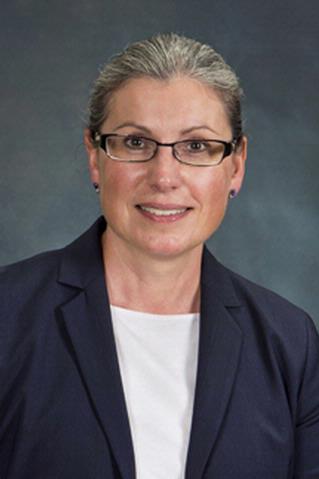Huxlin Lab
Welcome to the Huxlin Lab
Can the damaged, adult visual system repair itself? To what extent can it do so? What are the principles governing such plasticity? How can knowledge we gain enhance vision restoration efforts?
The Visual Perceptual Restoration Laboratory (VisPeR Lab) studies the impact of visual system damage on behavior and seeks to develop new approaches to induce visual restoration after such damage. For the last few decades, our laboratory has been at the forefront of research into cortically-induced blindness, applying the knowledge we have gained to devise increasingly effective training paradigms for occipital stroke patients (a.k.a. those with hemianopia, quadrantanopia or cerebral visual impairment). Key to this effort is our ability to use perceptual training together with attentional manipulations, cross-modal cues, virtual reality, non-invasive, transcranial electrical stimulation - among other approaches - to restore some of the vision lost. We were the first to attempt visual restoration training in subacute stroke patients – the efficacy of which is currently being evaluated in a clinical trial (ClinicalTrials.gov # NCT04798924). Multiple ongoing projects include both in-house and collaborative work with colleagues at the University of Rochester and several key institutions nationally and internationally (see below). Overall, we seek deeper insights into how residual visual circuitry is altered both by cortical damage and training. Better characterization of the perceptual plasticity inherent in such damaged systems is essential to design more effective restorative treatments. We also hope that the principles of therapeutic design we develop for cortically-induced blindness can ultimately be applied to other forms of visual impairment that afflict patients world-wide.
Current collaborators: Duje Tadin (UR-BCS), Brent Johnson (UR-Biostats), Marisa Carrasco (NYU), Elisha Merriam (NIMH), Holly Bridge (Oxford, UK), Sara Ajina (UCL, UK), Gabriel Diaz (RIT), Brett Fajen (RPI), Martina Poletti (UR-BCS), Farran Briggs (UR-NSC), Kristina Nielsen (Hopkins), Lorella Battelli (Harvard), Geoffrey Aguirre (UPenn), Friedhelm Hummel and Estelle Raffin (EFPL, Switzerland).

Krystel Huxlin, Ph.D.
Principal Investigator
Research Projects
View All ProjectsPublications
- Differential impact of retinal lesions on visual responses of LGN X and Y cells.; The Journal of neuroscience : the official journal of the Society for Neuroscience. 2025 Apr 29.
- Multisensory stimuli facilitate low-level perceptual learning on a difficult global motion task in virtual reality.; PloS one; Vol 20(3), pp. e0319007. 2025 Mar 04.
- The effect of unilateral cortical blindness on lane position and gaze behavior in a virtual reality steering task.; bioRxiv : the preprint server for biology. 2025 Feb 06.
Affiliations
News
January 4, 2024
Dr. Krystel Huxlin Among SMD 2023 Mentoring Awards Winners
October 23, 2023
Huxlin, MacRae and URMC colleagues discover a new approach to treat established corneal fibrosis
November 8, 2022
Dr. Krystel Huxlin selected to Optica's 2023 fellows class
May 19, 2021
Ankita Kumar Wins the DeKiewet Summer Undergraduate Fellowship & 2021 CVS’s Walt and Bobbi Makous Prize
Contact Us
Krystel R. Huxlin, Ph.D.
Flaum Eye Institute
MC G.3186
601 Elmwood Ave, Box 314
Rochester, NY 14642
(585) 275-5495
khuxlin@ur.rochester.edu
Contact our Research Coordinator:
(585) 276-3426
huxlin_lab@UR.Rochester.edu
Cornea Lab Inquiries
(585) 273-3260













